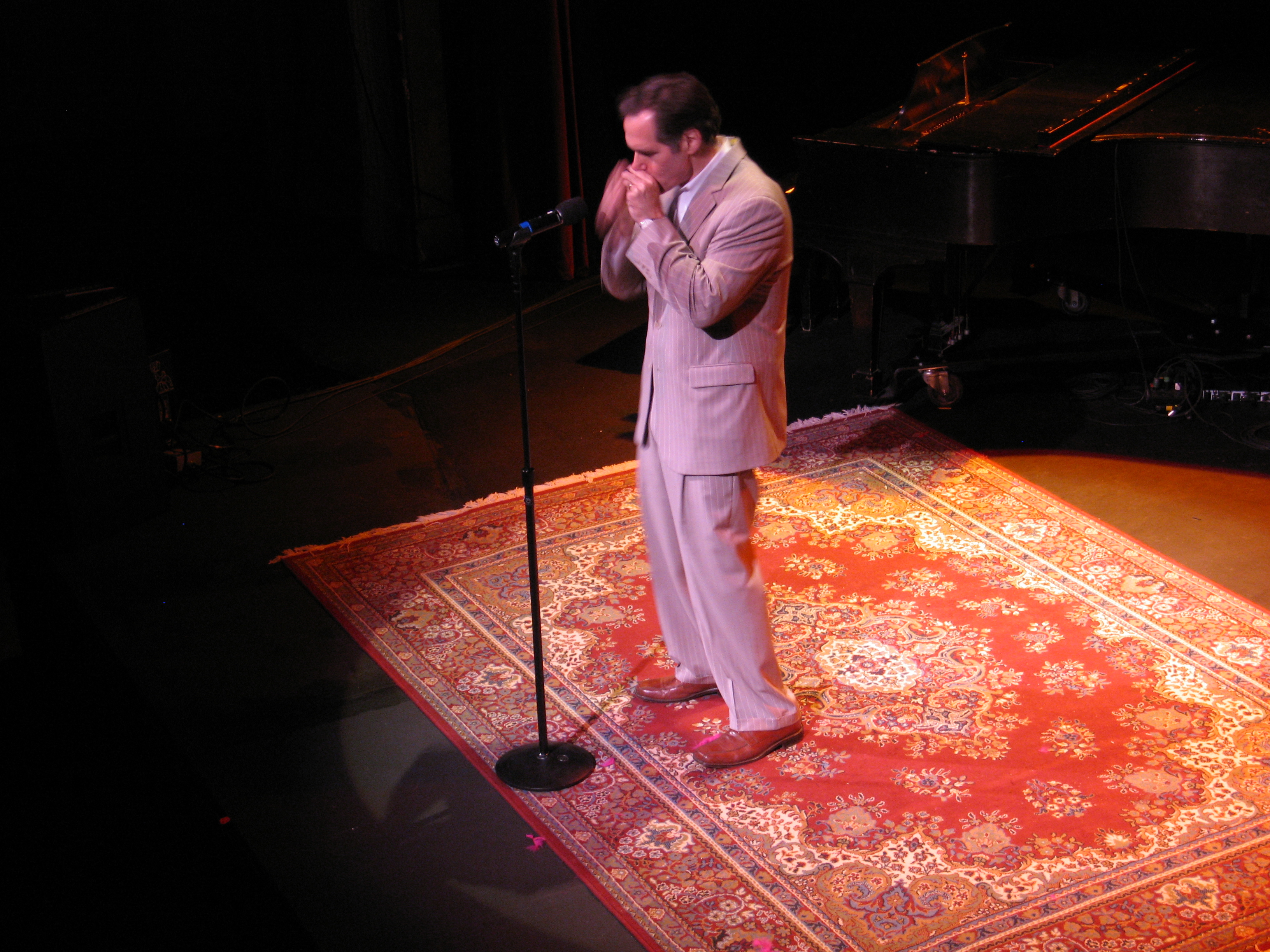
Harp Keys and Tunings for My Recorded Solo Repertoire
I’ve had a few requests recently for the harmonica keys and tunings that I used to record the pieces on my CDs “The Act of Being Free in One Act” and “The Second Act of Free Being.” So here, for your pondering pleasure, is a download PDF that lays it all out.
Please note that the specific keys I used for many of these pieces were a matter of convenience: I needed the tuning, and I happened to have a harp in good working order on hand that fit it. In other words, the tunings are absolutely non-negotiable, but the keys can be adjusted to suit what’s available (keeping in mind that you want to be somewhere near the range of the original; if I recorded it on a G harp it’s probably not going to work all that well on an F harp, and vice versa). I’m more likely nowadays to play “Peppermint Life” on a C harp than on the Db harp that I apparently used on the day it was recorded, and more likely to use an F harp than an E for “Winter Sun at Nobska,” but neither substitution is a big deal.
The various tunings I reference on the PDF are almost all available off the shelf from various manufacturers: country tuning (draw 5 reed raised 1/2 step), natural minor, melody maker, standard Richter, and harmonic minor. The exception is the Dorian minor, which gives you a Dorian mode in 2nd position. You make a Dorian minor by tuning the draw 3 and 7 reeds on a standard Richter 1/2 step down. (Or you can combine the draw plate from a Lee Oskar Natural Minor in G with the blow plate from a Lee Oskar standard tuning in C; the root tone is actually the same in both cases, but Lee names the natural minor harps after the key in 2nd position, not 1st.)
Beyond getting the right tunings in your hands, the hard part on many of these pieces is playing melodies from both sides of your mouth at once. The next thing to consider is the breathing, which requires some pretty steady rollin’ from your lungs on occasion. What can I say? Practice, man, practice.
That’s the lot. Enjoy. Let me know if you add one or more of these pieces to your repertoire.
Click here to download PDF of Richard Hunter’s solo repertoire with keys and harp types
Related Posts
2 Comments
Leave a Reply
You must be logged in to post a comment.
WHAT’S NEW
Categories
- Audio/Video
- Blog
- Blue Future
- Digitech RP Tricks and Tips
- Discography, CDs, Projects, Info, Notes
- Featured Video
- For the Beginner
- Gallery
- Hunter's Effects
- Hunter's Music
- Huntersounds for Fender Mustang
- Meet the Pros
- More Video
- MPH: Maw/Preston/Hunter
- My Three Big Contributions
- Player's Resources
- Pro Tips & Techniques
- Recommended Artists & Recordings
- Recommended Gear
- Recorded Performances
- Reviews, Interviews, Testimonials
- The Lucky One
- Uncategorized
- Upcoming Performances
- Zoom G3 Tips and Tricks
Richard –
I noticed two links on your front page that are dead:
Effortless Harmonica
To-Do List for the Beginning Harmonica Player.
Mark Purintun
http://www.harpinanawhinin.com
@mark purintun: Noted and thanks! RH